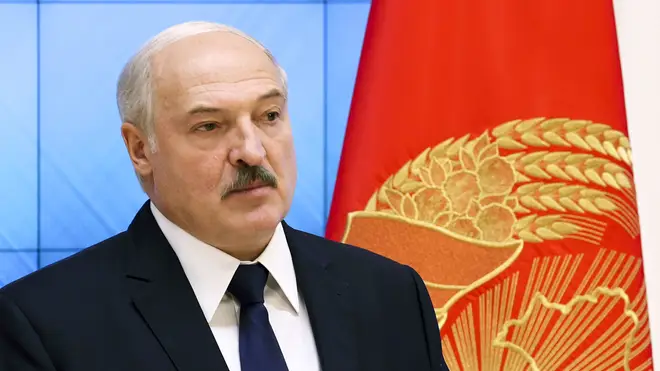
Ian Payne 4am - 7am
16 September 2020, 17:24

There have been protests in Belarus since the start of August.
Russia’s intelligence chief has accused the United States of instigating massive demonstrations against Belarus’ president that have entered their sixth week.
Protesters in Belarus are seeking the resignation of Alexander Lukashenko, denouncing his landslide re-election in the August 9 vote as rigged and demanding an end to his 26-year rule.
The US and the European Union have criticised the election as neither free nor fair, and urged Mr Lukashenko to start talks with the opposition – a call he has rejected.
Sergei Naryshkin, director of Russia’s Foreign Intelligence Service, claimed in a statement carried by Russian news agencies on Wednesday that the US has funded the Belarusian opposition and encouraged the protests.
“It effectively amounts to a thinly-veiled attempt to stage another ‘colour revolution’ and an anti-constitutional coup, the objectives and tasks of which have nothing in common with interests of citizens of Belarus,” Mr Naryshkin said, in a reference to the colour-coded uprisings that swept out unpopular leaders in Ukraine and other ex-Soviet nations.
Mr Naryshkin added that his agency has information that “the US is playing a key role in the current developments in Belarus”. He alleged that the US has earmarked tens of millions of dollars to finance Belarus’ opposition groups.
In a long speech to top Belarus officials on Wednesday, Mr Lukashenko accused the US and its allies of spearheading the push to unseat him through carefully prepared protests.
“We had the vote and got the result, period,” he said. “It’s time to stop stirring up society.”
Mr Lukashenko did not provide evidence to back his claim that the US had any involvement in the demonstrations.
He charged that the Czech Republic, Poland, Lithuania and Ukraine all played a major role. All those countries have denied similar claims by Mr Lukashenko in the past.
“The Belarusian 2020 scenario is a combination of the most effective ‘colour’ destabilisation technologies that have been tested in various countries,” he said. “They obviously count on the scale and duration of protests to wear us down and exhaust our resources. We aren’t relaxing and stand ready to respond to any challenge.”

His main challenger in the election, Sviatlana Tsikhanouskaya, dismissed his comments as an attempt to divert public attention from rigging the vote and the violent crackdown on protests.
“There is just one reason behind the protests in Belarus and it’s known to everyone: Lukashenko has lost the vote, but he doesn’t want to step down,” Ms Tsikhanouskaya told The Associated Press in a written comment. “People have denied Lukashenko their trust and support and demand that he leave.”
On Mr Naryshkin’s comments, she added: “It’s an internal political crisis, and the protesters’ demands contain nothing regarding relations with other countries or a shift in Belarus’ foreign policy course. Mr Naryshkin should better understand that instead of airing dated propaganda cliches.”
The pressure has pushed Mr Lukashenko to further cement ties with Russia, his main sponsor and ally. The neighbouring countries have a union agreement and maintain strong political, economic and military ties.
Russian president Vladimir Putin announced a new £1.15 billion loan to Belarus on Monday when he hosted Mr Lukashenko for four hours of talks in Sochi.
The Belarusian opposition has condemned Moscow for offering a financial lifeline, warning that it would tarnish future ties between the countries.
Putin spokesman Dmitry Peskov reaffirmed Wednesday that Moscow sees Mr Lukashenko as Belarus’ legitimately elected leader.
Mr Naryshkin charged that the US has taken Ms Tsikhanouskaya, who moved to Lithuania after the vote under the authorities pressure, and other Belarusian opposition activists under its “close patronage” to promote them as future leaders of the country.